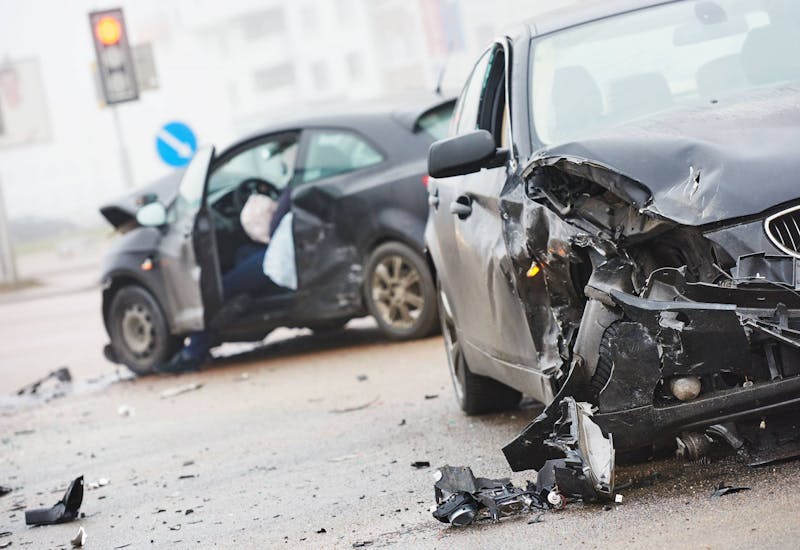
The word “comprehensive” means “complete,” so it’s not hard to see why so many people think that having comprehensive auto insurance means they are completely covered in the event of a crash. But unfortunately, that’s not the case.
If you’ve been injured in a traffic accident, it’s best to speak to a Tampa personal injury attorney about your case. But for now, it’s important to understand what comprehensive insurance is and how it compares to other types of auto insurance in Florida.
What Does Comprehensive Auto Insurance Cover?
Comprehensive insurance is often referred to as “other than collision” insurance. This is because this type of insurance only covers the cost of repairing or replacing your vehicle if it’s damaged or stolen as a result of an incident that is not related to a traffic accident.

For example, comprehensive auto insurance may cover the cost of damages caused by:
- Vandalism
- Falling objects, such as a tree, rocks, or hail
- Windshield cracks
- Fires
- Natural disasters
- Theft
- Accidents involving animals
This type of insurance will not cover any damage your car suffers in a traffic accident. In other words, you will not need to file a claim with your comprehensive insurance provider after a traffic accident.
What is the Coverage Limit For Comprehensive Auto Insurance?
The coverage limit will vary depending on the insurance provider and policy. But in general, the coverage limit is usually equal to the market value of your car.

For example, say the fair market value of your car is $10,000. If your car is stolen, you can file a claim with your comprehensive insurance provider for a replacement vehicle. Your insurance provider may pay you $10,000 to cover the cost of a replacement since that is the fair market value of the car that was stolen. But the terms of each policy are unique, so it’s best to read your policy to determine what your limits are and how you will be compensated for covered repairs and replacements.
What’s the Difference Between Comprehensive and Collision Coverage?
The terms “comprehensive coverage” and “collision coverage” are often used interchangeably, but they refer to two different types of insurance policies. A collision insurance policy will cover damages that are caused by a traffic accident, whereas a comprehensive insurance policy will cover all other types of damage. If you are involved in a car accident with another car, your collision coverage may cover the costs of repairing your vehicle or replacing it, depending on the extent of the damage.
Is Comprehensive Auto Insurance Required in Florida?
The minimum auto insurance requirements vary from state-to-state. In Florida, comprehensive auto insurance is optional, so drivers are not required to obtain this type of coverage.
However, if your vehicle is financed or leased, the lender may require you to obtain comprehensive insurance coverage. This is typically required to protect the vehicle in the event that it is damaged at some point during the course of your lease or loan.
Should You Obtain Comprehensive Auto Insurance?
If you own your vehicle, you are not required to obtain comprehensive auto insurance coverage in the state of Florida. But many drivers choose to add this coverage to their policy even though it is optional. If you are considering whether or not to add comprehensive coverage, here are some of the things you should keep in mind:
- The value of your vehicle: The higher the value of your vehicle, the more important it is to obtain comprehensive coverage so you don’t have to pay for repairs or a replacement out of your own pocket.
- Your community: If cars in your community are frequently vandalized, stolen, or damaged, it is best to obtain this type of coverage so you are protected.
- Your financial situation: Think about whether or not you would be able to pay for repairs or a replacement vehicle if something happened to your car. You should also determine how much it would cost to add this optional coverage to your policy.

The choice is yours, but if you want to ensure you are fully protected in the event your car is vandalized, stolen, or damaged in other ways, it’s best to add comprehensive coverage to your policy.
What Are Florida’s Auto Insurance Requirements?
Every driver in Florida must carry a minimum of $10,000 in personal injury protection (PIP) coverage and $10,000 in property damage liability (PDL) coverage.

PIP insurance is often referred to as “no-fault” insurance because it will cover certain damages suffered in a car accident regardless of who was at fault for the crash. This insurance policy will cover 80% of medical expenses for emergency medical conditions in addition to 60% of wages lost as a result of car accident injuries. There’s no need to prove liability in order to obtain compensation through your PIP insurance. You simply need to file a claim and receive medical treatment within 14 days of the accident.
PDL insurance will cover damages to another person’s property that were caused by a traffic accident that was your fault. This insurance policy will also cover another person’s property damage caused by someone who was driving your vehicle at the time of the accident.
Discuss Your Car Accident Case With Our Personal Injury Attorneys Today
If you have been injured in a car accident in Tampa, seek legal representation from the skilled personal injury attorneys at Carlson Meissner Hart & Hayslett as soon as possible. Let us review the details of your case, help you understand your legal options, and work tirelessly to recover the compensation you deserve. With over 125 years of combined legal experience, our attorneys know what it takes to help the injured secure the compensation they are entitled to by law.
Contact our law office to schedule a free consultation regarding your case today.

